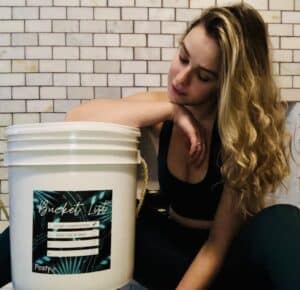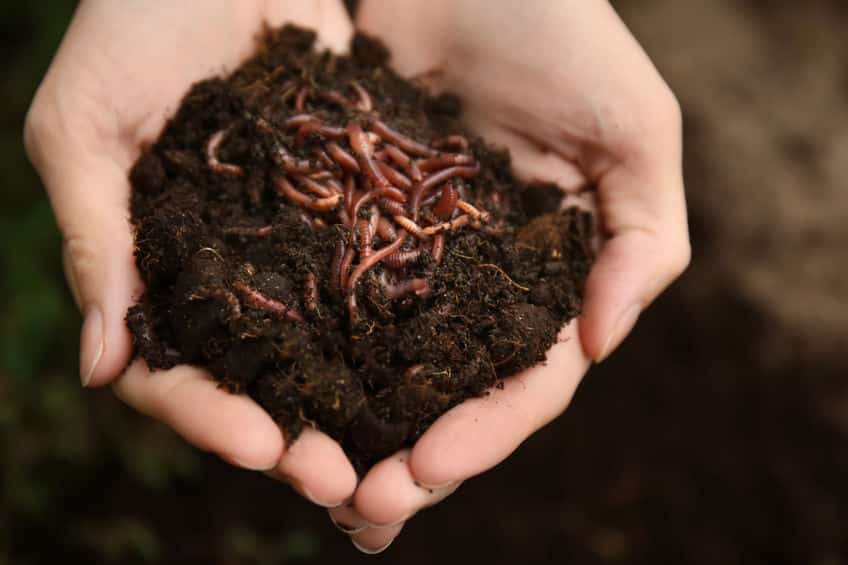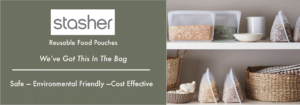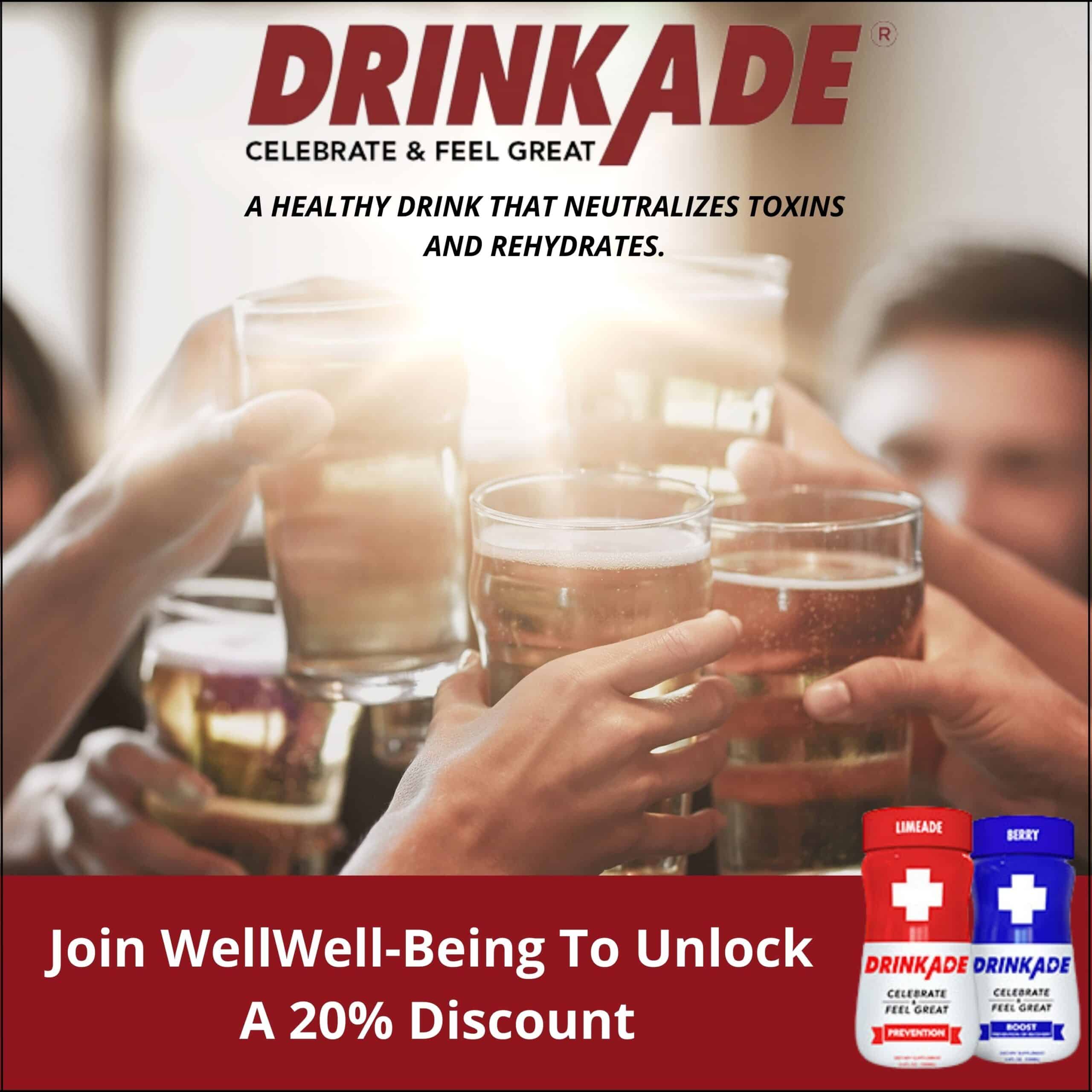One person’s trash is another person’s gold. That’s certainly true when it comes to composting and with good reason. Millions of Americans are now involved in at-home urban and residential composting. In fact, it’s estimated that more than 5 percent of the country’s food waste is now being recycled in a movement that taking pressure off over-burdened landfills, while helping the environment and producing high-value, nutrient-rich planting soil. Composting still isn’t for everyone. It can seem overwhelming and complicated. Plus, lots of people aren’t thrilled with the idea of having a bucket of waste-munching worms under their sinks. Saskia Salak is trying to change that with Posty, an interactive information platform designed to help make those inclined more comfortable with the “C Word.” A correspondent for WellWell and the daughter of its founder, she recently agreed to help take the lid off the dirty little secrets tied to the practice.
What is composting for those who may not know and how did you get into it?
I’ve always been interested in the environment, but Anne Hathaway’s birthday was a turning point for me. She shared an Instagram picture of herself holding a bamboo toothbrush and told everyone that instead of wishing her happy birthday to go look at this store called Package Free Shop, founded by Lauren Singer. That’s when I started following Lauren and it really opened my eyes in terms of what small changes or sustainability switches you can make to have a major impact on the environment. There are lots of changes you can make and all of them are relatively easy if you think about it. I was always kind of interested in composting, but I struggled because it’s confusing topic to start off with. There’s a lot of different elements at play.
Why focus on composting?
The reason I picked this area was because it’s incredibly important but it’s not easy for someone to just jump into. I wanted to find a way to make it work for as many people as possible, to eliminate the barriers to entry for someone who cares about the environment but feels overwhelmed with the process.
How do you distinguish Posty from other informative platforms?
We are focused on helping people get started and taking them through the entire composting process. If you know nothing about composting other than the fact that you want to do it, Posty becomes a valuable tool. That doesn’t mean that there aren’t other resources available. Obviously, they’re incredible books. Rebecca Louie’s Compost City was one of the major game changers for me. But there aren’t a lot of step-by-step guides walking you through the entire lifecycle. So that’s what Posty does. We guide individuals through the entire cycle from finding the right method to getting the supplies to weekly tutorials and monitoring your progress.
Is there a one-size fits all approach in composting?
There’s a lot of different options depending on what resources you have. If you don’t have an outdoor space, you’re a bit more limited in what sort of composting you can do.
Vermicomposting, which uses worms, is recommended method for individuals in this situation. But if worms freak you out, there’s also the option to collect your waste and drop it off at a third party. Alternatively, if you have an outdoor space, your options are limitless. Most with that set up end up hot composting, though you can explore burying or blending your waste. It all depends on what resonates with you.
What’s the biggest challenge for people who want to get started?
Speaking from a personal level, the hardest thing for me in terms of getting started was figuring out the appropriate level, what I needed to do given the resources I had, where I could participate. It may seem obvious to someone familiar with the topic but a beginner it can be quite daunting.
That’s why as soon as you enter the Posty site, we ask what level of composting you’re at, whether you’re a newbie, dabbler or an enthusiast who wants ongoing information. Through an interactive quiz based on a series of predetermined questions, we’ll will tell you what composting method you should pursue or what options you have. This is followed by a comprehensive list of resources to guide you along the way.
What type of waste can someone compost?
It depends on which method you’d go after. But the general no-no’s across the board are dairies, meats and oils for the most part. Additionally, when it comes to worms certain items are toxic – tomatoes, potatoes, anything acidic, so I like to describe worms as picky vegans, the kind you wouldn’t want as dinner guests.
If you don’t have a garden or outdoor space, what can you do with finished compost?
In tight quarters you’ve got two options. Assuming you’re collecting waste but not actually partaking in the decomposition process, there are incredible programs like Share Waste, which connects people all over the world with others who are composting their area. So, just because you don’t have a backyard, one of your neighbors who is composting might have enough bandwidth to take on your waste. Many local municipalities now also have drop off options for compostable material and there are even third-party services that will pick of small batches for a fee. That’s one option.
Then another alternative is that you have worms that break down the waste. Once that happens, there are ways to put that finished material, essentially dirt, to good use. That’s another part of the journey that we actually map out in a segment called “You’ve got dirt. Now what?” It takes you through all the different options like putting it in your garden, giving it to your house plants or donating it. There are lots of community gardens will accept finished compost. It’s an incredibly powerful soil fertilizer so that’s an easy option as well.
The EPA reports that food composting rose 40 percent from 2013 to 2017, which covered about 6 percent of all foods. Along with this, 6 million homes were engaged in curbside collections during that time. Both numbers are undoubtedly higher now. Given this, how do you compare composting in terms of importance to other elements of sustainability?
I don’t know that you can quantify it in those terms, nor that it would be productive to do so. But I think that we can talk about the benefits outside of just recycling food. Consider that between 30 to 50 percent of a garbage bag at the curb is compostable and that includes food, paper, yard waste, etc. With education and waste reform that could equate to cutting landfill volume in half. That’s major. We’re literally running out of room to put our waste; we’re running out of things to do with it. So, the impact of reduction alone would be monumental. But that’s not the only benefit. In terms of a soil additive, compost is highly absorbent so it can decrease the likelihood of floods significantly. It also acts as a filter and removes contaminants from waterways, while helping to sequester carbon from the atmosphere.
What’s the biggest misconception people have about composting?
I think the biggest misconception is that it’s something that needs to be done in a rural area. It’s something that there’s really only one solution, there’s one way to do it and that it can’t be done in an urban environment and that you as an individual can’t participate in it.
Posty’s tone is hip, edgy and fun. Why do you think this is effective?
That’s a great question. From a tone standpoint, I was really inspired by Betches, a New York media company that is prominent on Instagram. It was started by several young women in 2011 and has evolved into a multi-million-dollar franchise. While they aren’t known for eco content, it was my goal to be the Betches of sustainability, to create a voice that I hadn’t heard often in that space.
The environmental voice tends to be very urgent, understandably so. We’re dealing with a climate emergency; a global climate crisis and I think a lot of people are frustrated with the pace of action. So, the idea is to take this really scientific and technical topic and make it fun, make people want to read about it and maybe laugh as they are, you know, dealing with the worms and garbage or trash.
One personal question. Is it true that your father killed a bucket of worms?
That is definitely true. He moved a bucket of compost with perfectly healthy worms onto an outside deck without thinking and they froze. I am definitely in mourning, but I didn’t want them in die in vain. That would completely negate their positive impact. So, I buried in the backyard along with the finished compost so hopefully next spring they’ll help something grow.
 About Saskia Salak
About Saskia Salak
Saskia Salak is CEO and founder of Posty, an all-encompassing resource for compost information and preparation and execution.
Learn More
Goposty.com
Instagram: @go_posty
Facebook: @GoPostyy













